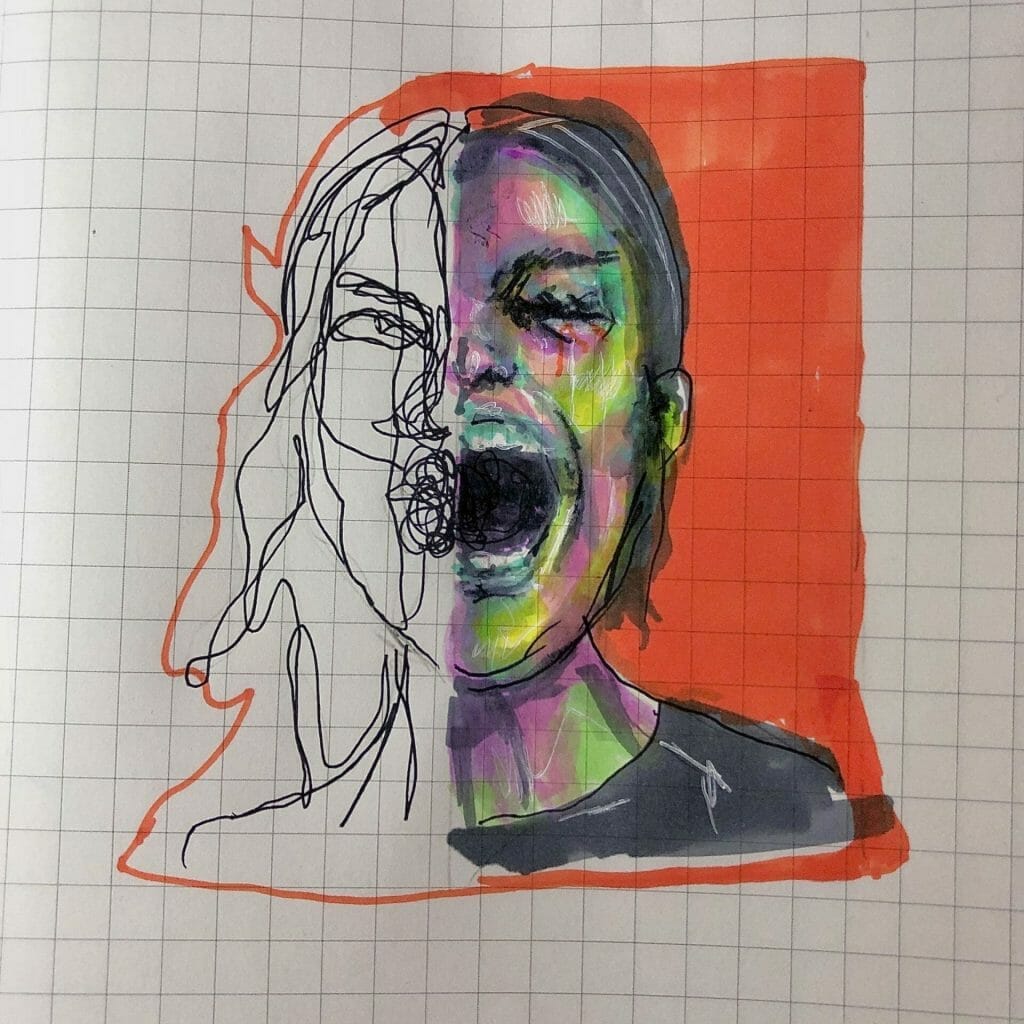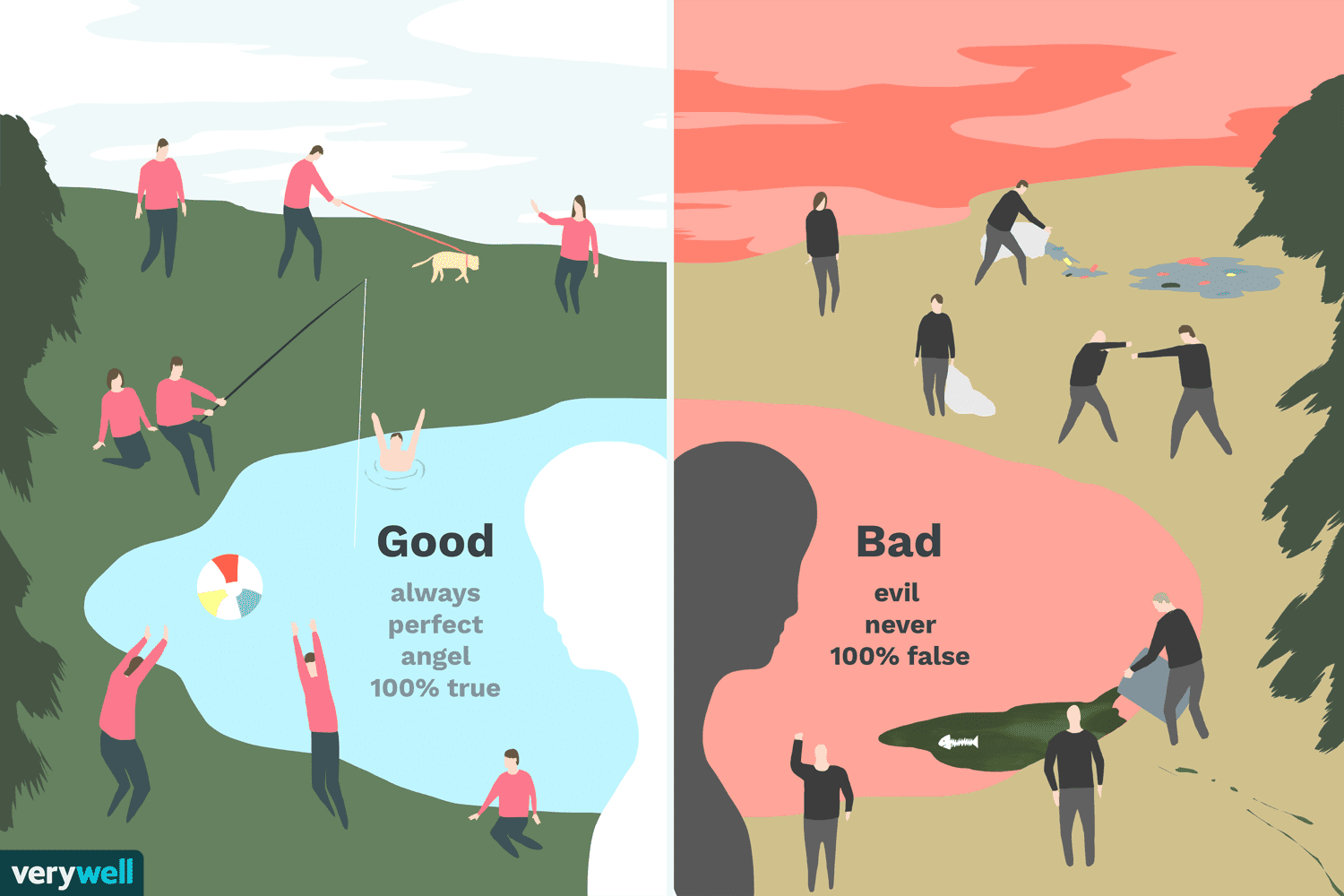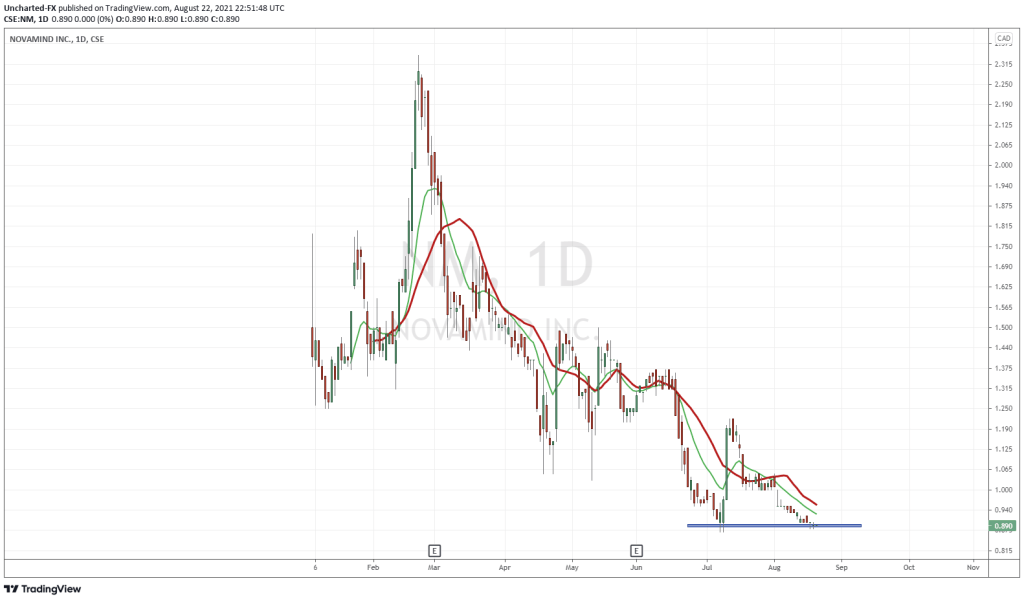Cluster B
Several psychedelics companies are out to target depression, anxiety, PTSD, and substance use disorder – but surprisingly we don’t hear much about personality disorders.
Despite an estimated 9.1% prevalence in the population, personality disorders have been largely ignored by the psychedelics sector up until this point. For example, Field Trip (FTRP.CN) screens out people with personality disorders from their ketamine infusion therapies stating it can ‘worsen symptoms’, but this is vague.
Granted, it is still early and there isn’t a ton of research. Yale University is currently doing a study on the benefits of ketamine in reducing suicidality in borderline personality disorder (BPD), initial results have been promising. On the public side, Novamind (NM.C) is doing an 18-week study on the benefits of Brexpiprazole for those with borderline personality disorder (BPD). But I think the big opportunity here is on the therapy side, BPD is a complex and difficult disorder to treat which needs new innovations and research.
The nine criteria for BPD are:
- Fear of abandonment.
- Unstable relationships.
- Unclear or shifting self-image.
- Impulsive, self-destructive behaviors.
- Self-harm. Suicidal behavior
- Extreme emotional swings.
- Chronic feelings of emptiness.
- Explosive anger.
- Feeling suspicious or out of touch with reality.
Someone with a personality disorder may suffer from depression or anxiety when in reality the underlying issue is a pervasive personality disorder that follows them everywhere they go, hindering their self-image, relationships, emotions, and finances.
10% of people with BPD will die of suicide
Because of the severity of BPD’s self-harming behavior, people with BPD seek treatment at a much higher rate than other personality disorders, this has caused BPD to be the most widely studied personality disorder. With its lack of treatment and medication options, BPD is incredibly taxing on the medical system. BPD is present in only 1–2% of the population, but in 10% of psychiatric outpatients, and between 15% and 25% of inpatients.
An estimated 10% of people with BPD will commit suicide. The current treatment methods for BPD are specifically designed psychotherapies like dialectical behavior therapy (DBT) which was created in the 1980’s by Dr. Marsha Linehan.
DBT has been proven to be effective in treating those with BPD, but it has its limitations like time and cost as therapy can often take years and thousands of dollars. Several other psychotherapy methods have also been tested in randomized clinical trials: mentalization-based therapy, transference-focused psychotherapy, schema-focused therapy, and standard cognitive therapy, but DBT still reigns supreme as of 2021.
While DBT has been shown to be effective in lessening the symptoms of BPD and potentially leading to an eventual recovery – it is a long and arduous road, taking years or sometimes decades, based on the accounts of those who have recovered. Treatment, although often successful is typically rocky, it’s often hard to establish a bond with the therapist, causing some to drop out of therapy early, or go inconsistently. This is compounded by the length of time it takes for the current therapies to start working.
Many BPD patients have courses of treatment marked by multiple failed suicide attempts. These treatments are associated with multiple trials of psychotherapy, multiple prescriptions, repeated emergency room visits, and hospitalization for suicide attempts. Researchers like Dr. Linehan have done great work that has saved lives, but more research still needs to be done.
In a 2016 study of adults with major depression, Johns Hopkins Medicine researchers reported that two doses of the psychedelic substance psilocybin, given with supportive psychotherapy, produced rapid and large reductions in depressive symptoms, with most participants showing improvement and half of study participants achieving remission through the four-week follow-up. Imperial College London researchers used psilocybin to treat a small number of patients with depression, monitoring their brain function, before and after. Images of patients’ brains showed changes in brain activity associated with marked and lasting reductions in depressive symptoms. Participants reported benefits lasting up to five weeks after treatment.
Psychedelics have shown promising results in the treatment of depression in a number of clinical trials over the last decade. Not only are the initial psychedelic trips and therapy sessions beneficial, but researchers are finding that the effects are long-lasting, stretching far beyond the giddy pink cloud we all feel after a nice trip.
One aspect where I see psychedelics and BPD behavior lining up perfectly is splitting.
Splitting
Splitting is a cornerstone of BPD. It typically occurs as a defense mechanism, often triggered by a painful thought, idea, or memory, and causes the person with BPD to see a person, place, situation, etc. as either all good or all bad. It can shift in an instant.
For the family or partner, this can be extremely confusing and frustrating as it feels like their loved one is constantly pushing and pulling. For the person going through it their fight or flight mode kicks in, there is a threat detected, it’s like you are in a tunnel, you can only see in one direction, it’s like a downward spiral you can feel physically.
When splitting happens internally like this, it combines with BPD’s impulsive behavior trait causing a dangerous combination of thoughts. This partially explains the propensity toward suicide and suicidal thinking. Someone might think, if I am 100% bad and there is nothing good about me, and I can’t see it any other way, what’s the point of living? It becomes a seemingly valid question at that moment.
For those with BPD, splitting can become a way of life, and I anticipate this will be one of the most interesting aspects of Novamind’s study, along with potential integrations into DBT therapy.
I am a huge fan of Dr. Linehan, and what she has done with DBT – but I wonder if psychedelics could prove to be an innovation on the system, maybe for some of the more extreme cases.
In DBT therapy, one method for dealing with splitting is encouraging the patient to hold two paradoxical thoughts at one time. BPD expert Dr. Fox talks about this using the example of chocolate in that – you may love chocolate, but it’s not all good, or all bad – a chocolate-covered insect for most people is gross. This may sound overly simplistic, and it probably is, but rewiring the brain is a long journey. This could also lead to what people refer to as ‘ego death’.
Ego death
It’s hard to quantify ego death exactly, but someone who is stuck in their thoughts, unable to get out of their own head and emphasize with others could definitely have a transformational experience with psychedelics. The data has shown that psychedelics have a spiritual effect on people’s lives, with that change it’s only natural to think personality could change as well as a result of these experiences. Even Bill Wilson, founder of Alcoholics Anonymous did LSD multiple times with Aldous Huxley in the 1960s and came to the conclusion that psychedelic experiences could help alcoholics and addicts having issues with the spiritual side of the 12-step program. It all comes full circle when looking at people with BPD’s high correlation to alcoholism and substance abuse.
Maladaptive behaviors like splitting are typically learned in childhood and get brought into adulthood. Unlike antidepressants, psychedelics could cause that light switch to go off, to see the situation from a different angle. Combined with psychotherapy I see this helping in several of the traits associated with personality disorders like BPD and NPD from suicidal thinking, lack of empathy, lack of identity, feelings of emptiness.
Psychedelics have helped thousands, maybe millions of people deal with these issues. They are not reserved for people with personality disorders, they are a part of the human condition. And yes, those with a personality disorder are going to be much more extreme cases, but if psychedelics is all about supporting treatment resistance therapies, I think we have to look at the most extreme cases as an opportunity.
Depression is one of the most marketable conditions to target, but often someone dealing with depression has an underlying issue like a personality disorder. I don’t understand why more companies aren’t getting into this. Props to Novamind for focusing a study on it, I think there will be a lot more to come in this area moving forward.









